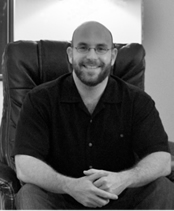Career Stress: When You Really Need a Vacation.
If we are really sick many of us comfortably “use the sick day” and take off of work. However the same idea of taking care of our health does intend to apply the same way in relation to our emotional well-being. Many times we don’t have external markers that “justify” taking care of ourselves until the problem becomes much bigger. Once the problem reaches this point is more likely to interfere with her functioning and this could have been avoided by taking action earlier.
Keeping busy can even be a way to avoid things that are uncomfortable. which can be very helpful in the short run and that we get more things done and do not become overwhelmed immediately. However, we can wind up feeling stuck in keeping busy. If we stop being busy we are susceptible to being overwhelmed by things that we may not see his being easily addressed in the short run. On the other side, if we continue to be busy we will not likely get to the point where we can make headway with the things that overwhelm us.
This is where taking a break from the regular pattern can be helpful and even insightful.
American culture doesn’t seem to place the same way on the need for vacation and recharging as other cultures. In fact, taking time off can be viewed as a weakness with fear of retribution. This is unfortunate, since it is accepted that being fully healthy and recharged allows us to be most effective. Taking time off can allow us to produce more and be more diverse and creative in our responses to challenges. Once we begin to get worn down these problems can compound making it harder and harder to get back to our peak performance. A 2011 review by researchers at the University of South Florida found that high stress at work can also contribute to difficulty sleeping, headaches, stomach issues and more.
As related to work burnout there are some signs that you may be nearing burnout or at least benefit from some time off.
- Little annoyances seemed are more annoying than they used to be
- People are asking you if everything is okay or noting that you look fatigued.
- You notice making more mistakes on routine tasks.
- You’re more negative about things… pessimistic
- You start doing things at work that you know you shouldn’t ‘borrowing’ a stapler or not returning calls.
- More headaches, muscular pain, or overall physical discomfort. Stressful situations cause more inflammation and sensitivity to pain.
- Stomach upset.
- Difficulty falling asleep and or staying asleep.
- Drinking more alcohol or increased substance use frequently coupled with decreased exercise.
- Having a hard time remembering why you like work or your career.
Stress can be a positive contributor to our working at peak performance however there is a point of decline which is not frequently appreciated in our culture or workplace. If we are not mindful of when we get close to this point we set ourselves up to be susceptible to burn out or at least working harder with less return.
Dr. Charles R Davenport is a Licensed Psychologist who provides counseling and therapy services in Venice Florida in Sarasota Florida with Charles R Davenport Psy.D. LLC. He works with students and professionals around career stress to identify signs of burnout and aid them in using their strengths to overcome areas of difficulty.
